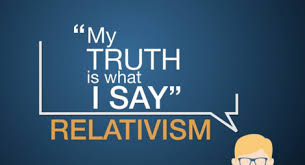
Types of relativism, ethical individual and cultural
Paper Formatting: Papers should be in a standard 12-point font (e.g. Times New Roman or Cambria), with 1” x 1” margins, double–spaced, and include page numbers. The top left hand side should include your name, the date, the course, and the name of your instructor. Put a title on your paper but do not include a title page.
NEED to cite all quotes
Write a 3-4 page paper destroying ethical relativism as a viable ethical theory; then choose a moral issue and argue that one side is better than another.
There are two types of relativism, ethical/individual and cultural. This paper is to use ethical/individual relativism only, as this is an ethical theory class. DO NOT USE CULTURAL RELATIVISM (do not even mention it). If you do not use ethical relativism, you will not get much, if any, credit for this paper.
The aim of this paper is to explain and then destroy relativism. Relativism is the idea that ethics is simply a matter of personal opinion and that no one’s opinion is any better than another. A person once remarked to me that the most valuable thing that I teach in this entire course is that this is false. Relativism is normally a reaction to the failure of moral absolutism, the idea that there is one right answer or system in ethics that applies to all people in all situations. For example, some say “Thou shalt not kill” is an absolute moral law. Thinkers have pointed out that it is perfectly legitimate to kill in self-defense, so this is not an absolute truth. If absolutism were in fact true in ethics, I would teach that answer the first week, and then I would be done. Since there are not exact answers in ethics, like there are in math, people have a tendency to adopt the extreme opposite position, that every answer is just is good as every other one, or that ethics is just a matter of opinion or perspective. This is usually due to the fact that no one really knows with certainty what is ethically true. As with absolutism, if relativism were true, I would teach only this theory, then the semester would be over. I approach ethics with the idea that neither absolutism nor relativism work as a system of ethics (I do think there are a handful of moral absolutes: killing an innocent person is always wrong, the same with adultery, spite, sexism or racism, for instance). Ethics, like life, lives in the gray area, and as ethical thinkers we have to be okay with not having precision in this discipline. Though there may not be absolute or perfect answers in ethics, we can maintain standards and hold that there are better answers than others. This is a claim that relativism denies. If relativism is true, then every moral belief is correct, even racist beliefs, beliefs that molesting children is good, sexist beliefs, etc. If every belief is correct, then nothing is wrong, and if nothing is wrong, then there is no right and wrong at all. Also, if every belief is correct, then extreme opposite positions are equally true, like pro-choice and pro-life. If these two views are equally correct, then concerning the abortion issue, relativism asserts that we should both kill and not kill the unborn. So inasmuch as absolutism claims there is only one right answer (like the 10 Commandments, for instance), relativism claims that EVERY answer is right. In other words, it destroys the very idea of ethics, that there is good and bad or right and wrong. So you are to destroy this theory!! After you destroy the theory, you will choose an ethical issue, then argue that one side is in fact better than another. You may not have an absolute solution to the issue, but you should try to persuade your reader that your side is better.
A moral issue is not any ethical matter; rather, a moral issue involves an ongoing problem or situation about a moral value (justice, rights, autonomy, life, etc.) that presents two viable alternatives that a person must choose between in order to evaluate right/wrong or good/bad. For instance, murder is not an ethical issue, as “murder is right” is not a viable alternative; racism is certainly an ethical matter, but it is not an ethical issue, as it would be absurd to claim that racism is good or right. Also, do not confuse specific cases or historical matters with moral issues. A specific case might be: “should this person be president?”; an historical matter would be the Tuskegee Airmen, for instance. These may very well be ethical matters, but they are not moral issues. Moral issues have two viable alternatives that can be reasonably argued for concerning a persisting problem: should we or should we not experiment on people, give illegal immigrants a path to citizenship, or have doctors help patients to kill themselves.
Some current ethical issues: gay marriage and shops refusing to serve gay people, free speech and the campus protests, labeling dolphins as persons to protect them, drug legalization, embryonic stem cell research, illegal immigration, etc. Some classical ethical issues: death penalty, abortion, organ donation, privacy, the environment, etc.
We can write this or a similar paper for you! Simply fill the order form!




